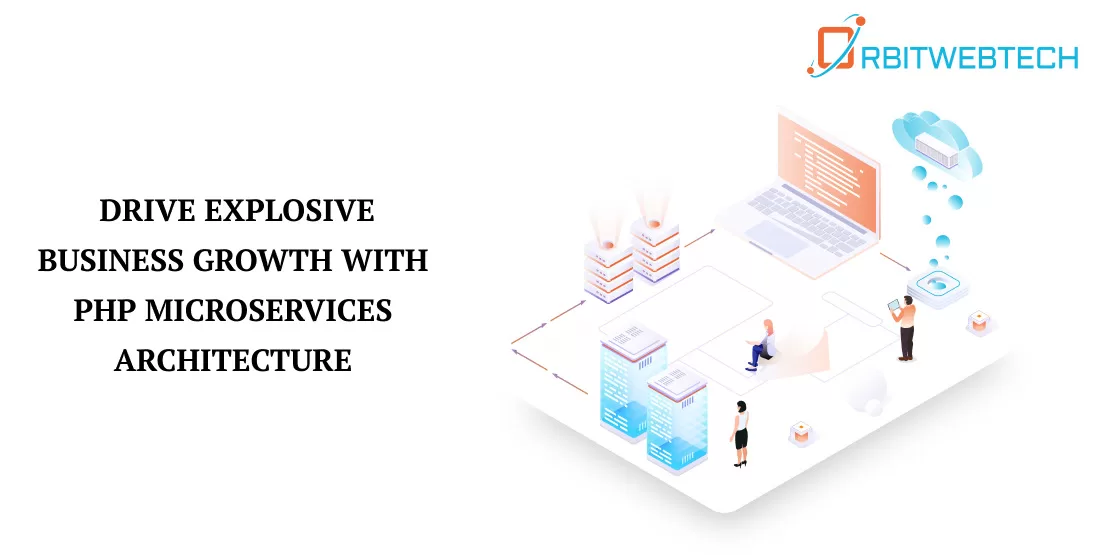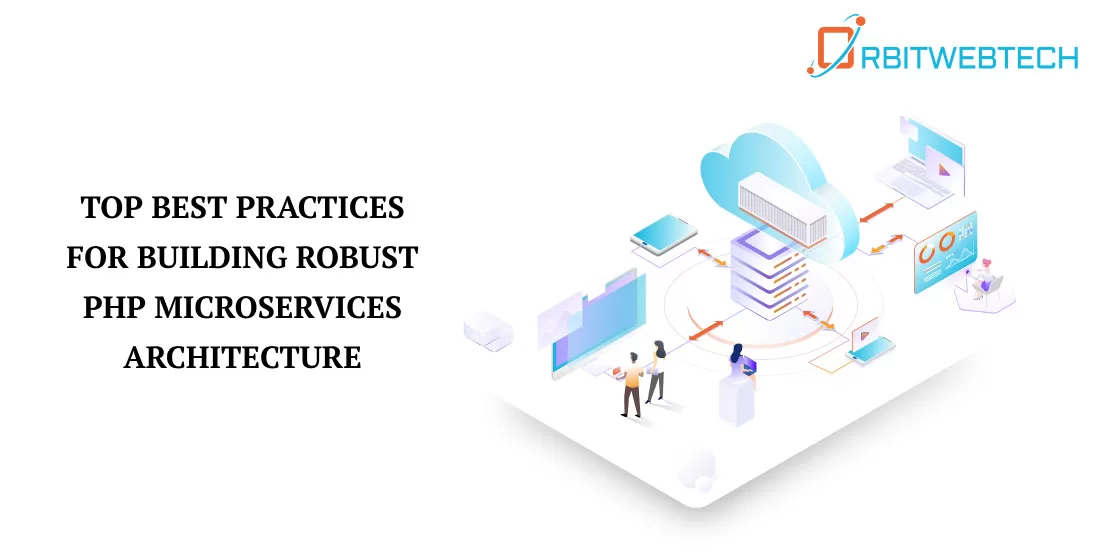
Developing a website involves constructing a multi-layered infrastructure, akin to building a road, where PHP for web development serves as the robust foundation for dynamic and interactive features. It is crucial to consistently maintain this structure to ensure that the overall quality does not deteriorate over time. This principle holds true for PHP in web development as well.
In many instances, individuals find themselves juggling numerous tasks while keeping track of impending deadlines. They are tasked with the responsibility of meticulously crafting essential website elements, such as UI/UX design, functionality, and project organization.
Moreover, the need to make numerous alterations to the code until achieving the desired result is a distinct challenge. This is a task that developers aim to avoid repeating at all costs.
Managing code in a suitable code environment can raise doubts for any web developer, especially when integrating various web design components without compromising website functionality proves to be a complete hassle.
In the end, using PHP makes your website impeccable the perfect solution.
In this context, you may be wondering why PHP is a preferred choice for web development when there are various other development options available?
Exploring the depths of PHP’s view allows you to gain a comprehensive understanding of its valuable features, as you continue to delve into this blog post.
What is PHP?
PHP, or Hypertext Preprocessor, stands out as a versatile programming language primarily employed for server-side scripting tasks, making it a go-to choice for backend development in web applications. The adoption of PHP in web development is justified by its proficiency in crafting robust web servers.
PHP serves as the intermediary connecting the database for data storage and the web server for displaying content on HTML pages. Its syntax draws similarities from languages like C and JavaScript, making it accessible and comprehensible for PHP software developers.
This scripting language is open-source, providing all the necessary resources to developers for free. Developers can easily integrate its code into any web development project. As a result, a large community of developers adopted the PHP language and now maintains and improves it.
What are the key features of PHP for web development?
1. Open-Source Language
PHP, an open-source language, provides developers with reusable code publicly, allowing them to access these templates. The community continuously revises the versions, making PHP more advanced than before.
2. Backend Development
PHP seamlessly integrates with HTML, enabling it to effectively manage multiple databases simultaneously. It takes charge of database operations, including data editing, modification, creation, and deletion. Furthermore, PHP is adept at storing and encrypting cookie data while also providing access to server files.
3. Object-Oriented Programming
PHP functions as a backend scripting language, utilizing compiled data within HTML. It boasts support for object-oriented programming, encompassing classes and objects. These classes are systematically classified based on their attributes and functions (methods). This differentiation of objects leads to the creation of a well-structured and organized codebase.
4. Dynamic and User-Friendly Interface
PHP offers versatility by accommodating both strong and weak variable types, granting developers the freedom to determine how data should be converted. Consequently, a web server can distribute content in various formats without constraints.
5. Code is Convenient to Execute
The backend scripting language employs straightforward code structures, offering a high degree of flexibility for modifying, generating, or removing data. It also facilitates efficient debugging and code refactoring for testing purposes. Given these advantages, numerous dedicated PHP developers choose to work with this web language.
6. Easy to Understand
PHP offers a user-friendly syntax that is easily comprehensible, making it a suitable choice for web design implementation. This quality proves beneficial for individuals at various levels of expertise, from novices to seasoned developers.
What Are the Use Cases for PHP Development
1. Web Development
PHP is equipped with server-side scripting capabilities that facilitate seamless integration of code with HTML. This streamlines the creation of cohesive web pages, providing PHP developers with a user-friendly platform for building websites and web applications.
2. Content Management System (CMS)
Creating a Content Management System (CMS) in PHP is a highly skilled endeavor. Numerous bespoke PHP development services utilize CMS frameworks such as WordPress, Joomla, and Drupal. PHP’s robust server-side scripting capabilities make it adept at seamlessly handling database content management.
3. E-Commerce Platforms
Online business platforms are becoming increasingly popular websites for businesses, and PHP is a highly regarded programming language for their development. PHP is widely utilized to create essential features such as shopping carts, product catalogs, and the seamless integration of content management systems within eCommerce websites.
4. Web APIs and Services
PHP is a versatile programming language commonly used in web development. It excels in handling HTTP requests and processing data efficiently. PHP facilitates the generation of JSON or XML responses and can seamlessly interact with multiple databases in a synchronized manner.
5. Chat Applications
To ensure rapid responses in chat applications, a crucial requirement is the availability of accurate information to generate outputs for client-side queries. PHP stands out as an excellent choice for backend development services in this context. It seamlessly integrates with databases, facilitating real-time updates. This enables the system to produce genuine, human-like responses.
Top Code Editors and IDE for PHP Development
An Integrated Development Environment (IDE) for PHP is a powerful tool that greatly facilitates the successful execution of code. In light of the often time-consuming nature of coding, IDEs play a crucial role in enhancing productivity and expediting project completion. Nevertheless, to harness the full potential of these tools, it is essential to engage a proficient PHP developer.
1. PHPStorm
PHPStorm stands out as a leading PHP Integrated Development Environment (IDE) tailored for editing HTML, PHP, and JavaScript code. This robust tool empowers developers with a wide array of capabilities, including code refactoring, configuration management, and efficient debugging to enhance website functionality. Its user-friendly interface incorporates simple yet effective design features that ensure swift application launches.
2. Netbeans
This PHP-based integrated development environment (IDE) is designed for Java and is compatible with Windows, Solaris, Linux, and macOS operating systems. Netbeans empowers developers in creating web applications by utilizing modular components, simplifying the process of designing cross-platform web applications.
3. Eclipse
Eclipse is a popular free integrated development environment (IDE) utilized primarily for Java-based programming. This versatile platform offers numerous extensions and plugins, empowering developers to efficiently create, edit, and test code for web development projects.
4. Laminas
Originally recognized as the Zend framework, the codebase underwent a transition to the Laminas Corporation. This open-source tool serves a versatile role in powering various web components, including content management systems (CMS), eCommerce platforms, messaging systems, and more.
5. Visual Studio Code
This paragraph describes a free, open-source PHP Integrated Development Environment (IDE) tool that is developed by Microsoft. This PHP code editor is compatible with various platforms, including Windows, MacOS, and Linux. Its features are particularly beneficial for enhancing web server performance, including functionalities like code debugging and configuration management.
How to Select the Right PHP IDEs?
1. Compatibility with the System
Various integrated development environment (IDE) tools offer distinct functionalities for website development. Their compatibility varies based on the operating system, ensuring efficient code execution. To select the optimal PHP IDE for your project, consider its compatibility with your specific operating system.
2. Debugging
Testing the performance of a website is essential, and selecting the appropriate PHP Integrated Development Environment (IDE) can provide a significant advantage. It’s important to choose an IDE that streamlines the debugging process with minimal effort. Collaborating with an experienced PHP software developer can be beneficial in identifying the ideal PHP IDE for this task.
3. Code Completion
Developers prioritize efficient project completion, with a significant portion of their time dedicated to code structuring. Opting for an Integrated Development Environment (IDE) equipped with automated code suggestions can significantly reduce the time required to finish a web project.
4. Client-Side Functionalities
Enhancing code completion goes beyond mere scalability; it must be customizable to accommodate diverse programming languages as per project demands. Integrated Development Environments (IDEs) empower developers to tailor client-side functionalities by implementing refactoring, configuration adjustments, and streamlined navigation.
The Coming Future of PHP
There is a prevailing belief that programming languages like JavaScript have outpaced PHP in terms of functionality, performance, and development services. However, this assertion is far from accurate.
Custom PHP development services continue to be highly relevant and are unlikely to become obsolete in the near future. PHP’s ability to enhance web servers has the potential to revolutionize the online experience, promising advancements that will elevate our digital lifestyles.
To be more specific, there are several areas where PHP could find future applications.
PHP in IoT
The Internet of Things (IoT) anticipates a future integrated into everyone’s lifestyle. Whether it involves IoT in smart cities or smart homes, all we can envision is what lies ahead.
PHP can undoubtedly play a significant role in implementing IoT technology in daily life for collecting databases through various IoT applications.
PHP in Chatbots
Chatbots are already amplifying everywhere. Currently, users are prominently engaging with response generative applications, making it a viral phenomenon.
PHP can play a crucial role in responsive applications by facilitating the utilization of server-side databases with real-time data input. It also empowers the collection of data from the client side to continually enhance the server database optimization.
PHP in Cloud
Currently, many businesses have embraced cloud-based applications to streamline their workflows. However, cloud apps connect client-side and server-side pages and primarily operate on the server database.
That’s why modern programming languages like PHP advance data gathering to streamline business operations spontaneously.
The Final Words
PHP remains a leading-edge platform with numerous qualitative attributes for pioneering software development among the myriad programming languages available. As websites and web applications continue to undergo transformative changes in the years ahead, PHP is poised to retain its status as the cornerstone of website creation.
PHP’s compatibility with a variety of databases, frameworks, and content management systems (CMS) facilitates rapid development and seamless scalability of web applications. Its open-source nature fosters an environment of ongoing enhancement, rendering PHP a dependable and robust programming language for crafting adaptable functionalities for websites.
This clarifies the question of why PHP is a preferred choice for web development due to the many advantageous features it offers for website development.
To encompass the vast database and achieve a split-second loading time on your website, you should deploy it. Additionally, creating an engaging user interface that provides an innovative nudge to your website is attainable when you Hire a PHP developer.
Optimize custom PHP development services for maintaining web servers and accelerating website speed.


